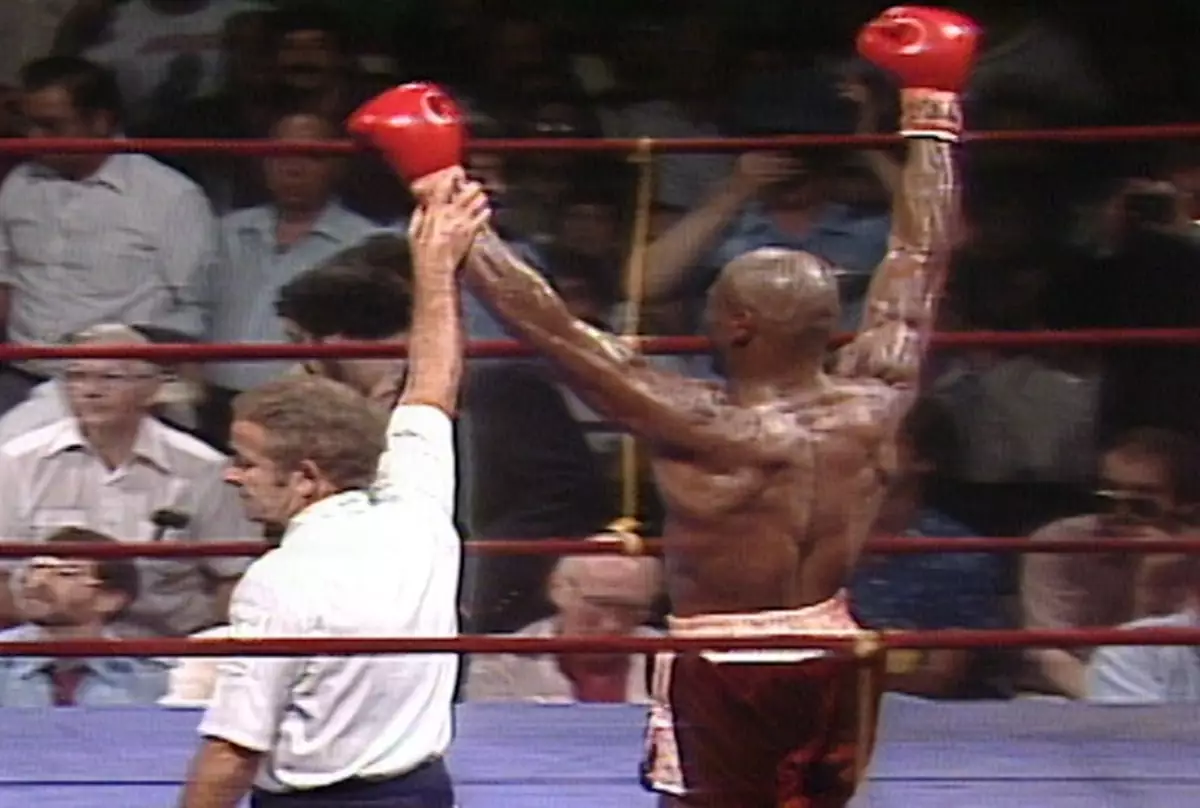The world of boxing has always prided itself on delivering unforgettable matchups and transcendental performances, and while contemporary fight cards boast an impressive lineup of talent, they are not a novel phenomenon. The sport’s history is replete with moments that resonate deeply within the consciousness of fight fans. One particularly emblematic date in this storied history stands out: the unforgettable night at Caesars Palace, 45 years ago, when elite fighters clashed on a singular platform, capturing the hearts and imaginations of the boxing world.
On that fateful evening, spectators were treated to an extraordinary collection of bouts featuring some of the greatest champions of their era. The main event showcased Sugar Ray Leonard taking on Wilfred Benitez for the WBC welterweight title. Concurrently, the card highlighted Marvin Hagler’s pursuit of glory against the seasoned Vito Antuofermo, a match that would determine the unified world middleweight titles. Meanwhile, Marvin Johnson faced Victor Galindez for the WBA light heavyweight crown, with Thomas Hearns stepping into the ring against Mike Colbert on the undercard. Each bout was fraught with anticipation, and as the lights dimmed and the bell rang, fans could feel a palpable energy in the arena – a distinct reminder of boxing’s vibrant allure.
To truly appreciate the significance of these matchups, one must understand the backdrop of the late 1970s boxing landscape. At the time, Leonard was emerging as a superstar, fueled by the glow of his Olympic gold medal in 1976 and his subsequent ascent to fame. With an unbeaten record of 25-0 prior to facing Benitez, Leonard’s reputation was built on dazzling speed and remarkable boxing intellect. On the other hand, Hagler, despite amassing an impressive record of 46-2-1, grappled with frustration. Fighting for what seemed like meager compensation, Hagler was overshadowed by the glitz surrounding rivals like Leonard, instilling a sense of bitterness that would echo throughout his subsequent career.
As Leonard and Benitez engaged in a strategic battle, fans witnessed a masterclass in boxing technique. The fight was an exhilarating chess match, marked by feints, slips, and counterpunches as both fighters sought to dominate the ring. Leonard’s precision and tactical acumen shone brightly, culminating in a crucial knockdown of Benitez in the third round and again in the final moments of the fight. The match culminated with Leonard clinching victory, showcasing his prowess and securing his championship title amidst dramatic tension.
Meanwhile, Hagler’s clash with Antuofermo remains one of the more controversial encounters in boxing history. Over the course of 15 grueling rounds, Hagler fought with unyielding intensity, showing a resilience that had been sculpted through years of fighting lesser-known opponents for modest pay. Many in attendance believed Hagler had earned a decisive victory, yet the judges ruled the fight a draw, leaving him, the audience and many critics enraged. This decision marked a turning point for Hagler; grappling with disillusionment, he reconsidered his place in the sport, but ultimately, the encouragement of boxing legends like Joe Louis reignited his ambition.
Ultimately, that night in 1979 was transformative not only for those who fought for championships but also for fans and for the sport itself, as it heralded the arrival of boxing’s golden age. The compelling narratives surrounding these fighters—rivalries born of both admiration and envy—would lead to grudge matches that live on in memory, most notably the eventual Hagler-Leonard bout in 1987, which still fuels debate today regarding its outcome.
With Johnson taking home the WBA light heavyweight title that evening and Hearns securing his spot among the elite, each fighter added further layers to an already complex boxing narrative. For enthusiasts looking back on that storied card, the event encapsulates the heart of boxing—a mesmerizing blend of athleticism, emotion, and history, reminding us of the rich tapestry that defines the sport we love.
As we reflect on the astonishing achievements of these champions, we reaffirm our appreciation for the fight game, recognizing that while new cards may captivate us today, they stand on the shoulders of legendary nights like those at Caesars Palace that shaped the narrative of boxing for generations to come.

